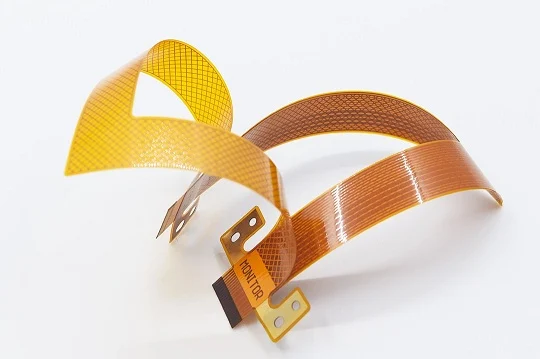
A flexible printed circuit (FPC) is a type of printed circuit board (PCB) that is designed to be highly flexible, allowing it to bend, twist, or fold without compromising its functionality. FPCs are commonly used in applications where flexibility and space-saving are critical, such as in wearable devices, medical instruments, and automotive systems.

Key differences between flexible printed circuits (FPCs) and rigid PCBs include:
1. Flexibility:
FPC:Designed to be flexible, FPCs can bend and conform to different shapes, making them suitable for applications with dynamic or curved designs
Rigid PCB: Traditional rigid PCBs are inflexible and cannot bend without risking damage to the board or its components.
2. Applications:
FPC:Commonly used in applications where flexibility, space-saving, and weight reduction are crucial. Examples include flexible displays, foldable smartphones, and wearable electronics.
Rigid PCB: Typically used in applications where a fixed and rigid structure is required, such as in most electronic devices like computers, appliances, and industrial equipment.
3. Material Composition:
FPC:Typically made of flexible plastic materials like polyimide or polyester. These materials provide the necessary flexibility while maintaining electrical integrity.
Rigid PCB: Composed of rigid materials like fiberglass or epoxy resins. These materials provide a stable and rigid structure for the board.
4. Manufacturing Process:
FPC: Manufactured using a flexible substrate and a different set of processes to accommodate bending and flexibility. This may include using roll-to-roll processing for mass production.
Rigid PCB: Manufactured using traditional PCB fabrication processes involving etching, drilling, and soldering. The manufacturing process is optimized for rigid materials.
5. Cost:
FPC:Generally, FPCs may be more expensive to manufacture compared to rigid PCBs due to the specialized materials and processes involved in achieving flexibility.
Rigid PCB: Typically more cost-effective for standard applications, as the manufacturing processes are well-established and widely used.
Understanding these differences is crucial when selecting the right type of PCB for a particular application. The choice between FPC and rigid PCB depends on the specific requirements of the electronic device or system, considering factors like form factor, flexibility needs, and cost constraints.